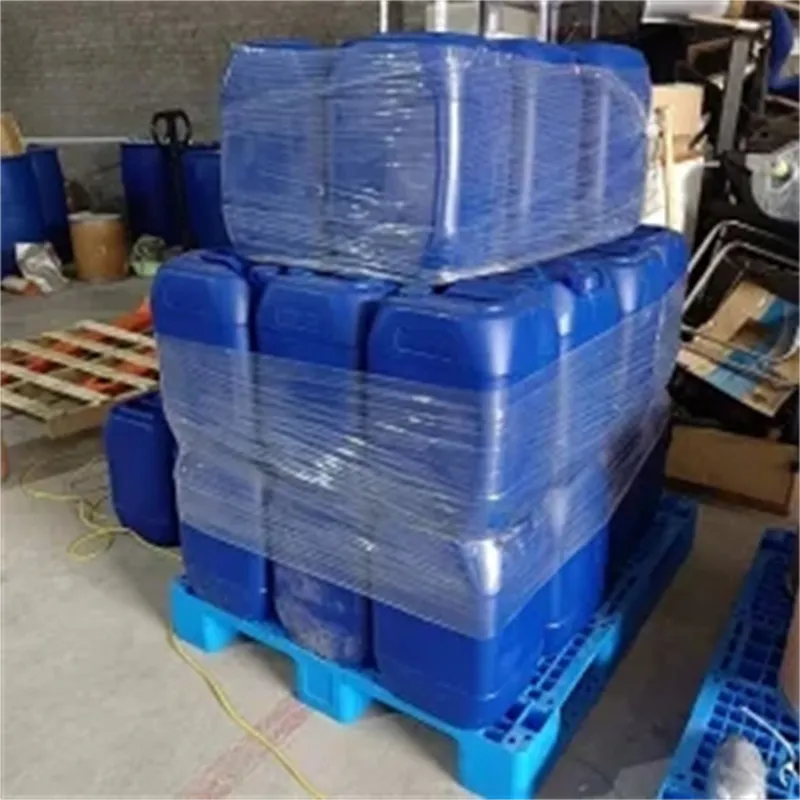
common organic solvents
Common Organic Solvents An Overview
Organic solvents are widely used in various industries and laboratories due to their ability to dissolve a range of substances. These compounds are primarily carbon-based and play a crucial role in chemical reactions, formulation processes, and material synthesis. Understanding common organic solvents, their properties, and applications is essential for chemists, environmental scientists, and industrial workers.
What are Organic Solvents?
Organic solvents are classified as liquids that can dissolve, suspend, or extract other materials without changing their chemical composition. They are essential in a variety of applications, from paints and coatings to pharmaceuticals and adhesives. Generally, organic solvents are volatile, which means they can easily evaporate into the atmosphere, making them effective in processes where quick drying is needed.
Types of Common Organic Solvents
1. Hydrocarbons These solvents, such as hexane, toluene, and benzene, are primarily composed of hydrogen and carbon. They are widely used for extraction processes and as cleaning agents due to their non-polar nature. However, some, like benzene, are toxic and pose significant health risks.
2. Alcohols Common examples include ethanol and isopropanol. Alcohols are polar solvents that can dissolve both polar and non-polar substances, making them versatile in chemical reactions and formulations. Ethanol is frequently used in laboratories and medical applications, whereas isopropanol is often found in disinfectants and cleaners.
3. Ethers Diethyl ether is a classic example of an ether solvent. Ethers are known for their low reactivity and ability to dissolve various organic compounds. They are commonly used in extraction processes in organic chemistry.
4. Esters Ethyl acetate and butyl acetate belong to this group of solvents. Esters are often favored for their pleasant odors and moderate volatility, making them suitable for use in paints, coatings, and adhesives.
5. Aromatic Solvents Toluene and xylene fall under this category. These solvents are characterized by their benzene ring structure, providing unique properties beneficial for dissolving dyes, resins, and certain plastics. However, they can also be harmful, necessitating proper handling and ventilation.
common organic solvents

Applications of Organic Solvents
Organic solvents are indispensable in many sectors, including
- Pharmaceutical Industry Solvents are crucial in drug formulation, extraction of compounds, and synthesis of active pharmaceutical ingredients (APIs). They aid in isolating active components and ensuring proper formulation stability.
- Paints and Coatings Solvents help dissolve resins and pigments, improving the application qualities of paints. They enable the paint to spread evenly and dry quickly, enhancing the final product's appearance and durability.
- Cleaning Agents Many organic solvents, like acetone and isopropanol, are effective cleaning agents due to their ability to dissolve oils, greases, and other contaminants. They are widely used in laboratories, industries, and households.
- Chemical Synthesis In organic chemistry, solvents provide an environment for chemical reactions. They influence the rate and outcome of reactions, making it crucial to choose an appropriate solvent based on the desired reaction conditions.
Safety and Environmental Concerns
While organic solvents are valuable, they can also pose significant risks. Many solvents are flammable, and some are toxic or carcinogenic, leading to health concerns for workers exposed to volatile organic compounds (VOCs). Proper safety measures, including adequate ventilation, personal protective equipment (PPE), and storage procedures, are essential. Furthermore, environmental implications, such as air pollution and ecological toxicity, highlight the need for strict regulations and the development of greener alternatives.
Conclusion
Organic solvents are versatile and essential tools in various fields, from laboratories to industry. While their benefits are undeniable, awareness of their health and environmental risks is equally important. Continued research and innovations aimed at finding safer, more sustainable solvent options will be vital as the world seeks to balance chemical utility with ecological responsibility. Understanding the functions and risks associated with these solvents can lead to safer practices and the development of more sustainable approaches in the future.
-
Pure Sodium Dichloroisocyanurate Dihydrate | Powerful DisinfectantNewsAug.29,2025
-
Industrial Chemicals: Quality & Purity for Every IndustryNewsAug.28,2025
-
Nitrile Rubber Honoring Strict Production StandardsNewsAug.22,2025
-
Aspartame Ingredients Honoring Food Safety ValuesNewsAug.22,2025
-
Fertilizer for Balanced Plant NutritionNewsAug.22,2025
-
Cyanide Gold Processing with High Purity AdditivesNewsAug.22,2025
-
Formic Acid in Textile Dyeing ApplicationsNewsAug.22,2025
Hebei Tenger Chemical Technology Co., Ltd. focuses on the chemical industry and is committed to the export service of chemical raw materials.
-

view more DiethanolisopropanolamineIn the ever-growing field of chemical solutions, diethanolisopropanolamine (DEIPA) stands out as a versatile and important compound. Due to its unique chemical structure and properties, DEIPA is of interest to various industries including construction, personal care, and agriculture. -

view more TriisopropanolamineTriisopropanolamine (TIPA) alkanol amine substance, is a kind of alcohol amine compound with amino and alcohol hydroxyl, and because of its molecules contains both amino and hydroxyl. -

view more Tetramethyl Thiuram DisulfideTetramethyl thiuram disulfide, also known as TMTD, is a white to light-yellow powder with a distinct sulfur-like odor. It is soluble in organic solvents such as benzene, acetone, and ethyl acetate, making it highly versatile for use in different formulations. TMTD is known for its excellent vulcanization acceleration properties, which makes it a key ingredient in the production of rubber products. Additionally, it acts as an effective fungicide and bactericide, making it valuable in agricultural applications. Its high purity and stability ensure consistent performance, making it a preferred choice for manufacturers across various industries.





